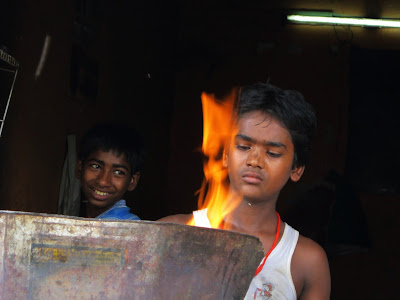Child labour is cheap. A child is submissive, and can be made to work under poorly lit and poorly ventilated spaces.
A child can be used for stitching, embroidering, weaving rugs and carpets, making matchsticks and firecrackers, and rolling beedis in backbreaking conditions.
The Child Labour (Prohibition and Regulation) Act, 1986 is being amended and is now in Parliament. According to Nobel Laureate Kailash Satyarthi, two of these amendments may defeat the very purpose of the Act.
The first is the one allows children below 14 to work in family enterprises.
Helping out after school is acceptable when it is truly a family business, but what stops anyone from exploiting this law? Anyone can claim a child as ‘family’ in the Indian poor classes, and even if a child is truly family, it is hard to ensure he or she will be sent to school once this amendment comes into force. Most of the children that land up in big cities are often brought by ‘uncles’ from the village who turn out to be middle men and traffickers. When Project Why opened our Yamuna centre we were faced with parents coming during class and asking for the child as she/he was needed to pluck vegetables. It took us a long time to get make the parents understand.
Another amendment is even more detrimental to child rights. At present, Child Labour law prohibits employment of a child in 18 occupations and 65 processes. The proposed new amendment reduces the prohibited occupations to three: Mines, Inflammable substances and Explosives. So the children under 15 working in ‘family-run’ businesses like domestic work, bead-making, carpet-weaving will be legal.
The question that needs to be asked is whether the child making beedis in his family business will be able to go to school? The only caveat one can think of is to define ‘family’ and limit it to parents and legal guardians, but in India, where the record of implementation is very low, that seems impossible. Children can help their families and even learn their skills but this should not come in the way of their health, education and leisure time. But these options aren’t available to the poorest of the poor.
Sanjay, a Project Why alumni, a gypsy ironsmith’s son, and a Project Why teacher, today walks the ramp in the world’s fashion capital, Paris. That was possible because his family allowed him to study and work in a trade other than theirs. Sanjay made his dream come true.
Project Why is a place where children are given the RIGHT TO DREAM.
Do you think that every child has the right to dream, and dream BIG? In a country like India, should children under 14 be allowed to help in family enterprises? Should any child, under or above 14 be allowed to work in factories making matchsticks or firecrackers or as domestic help?





